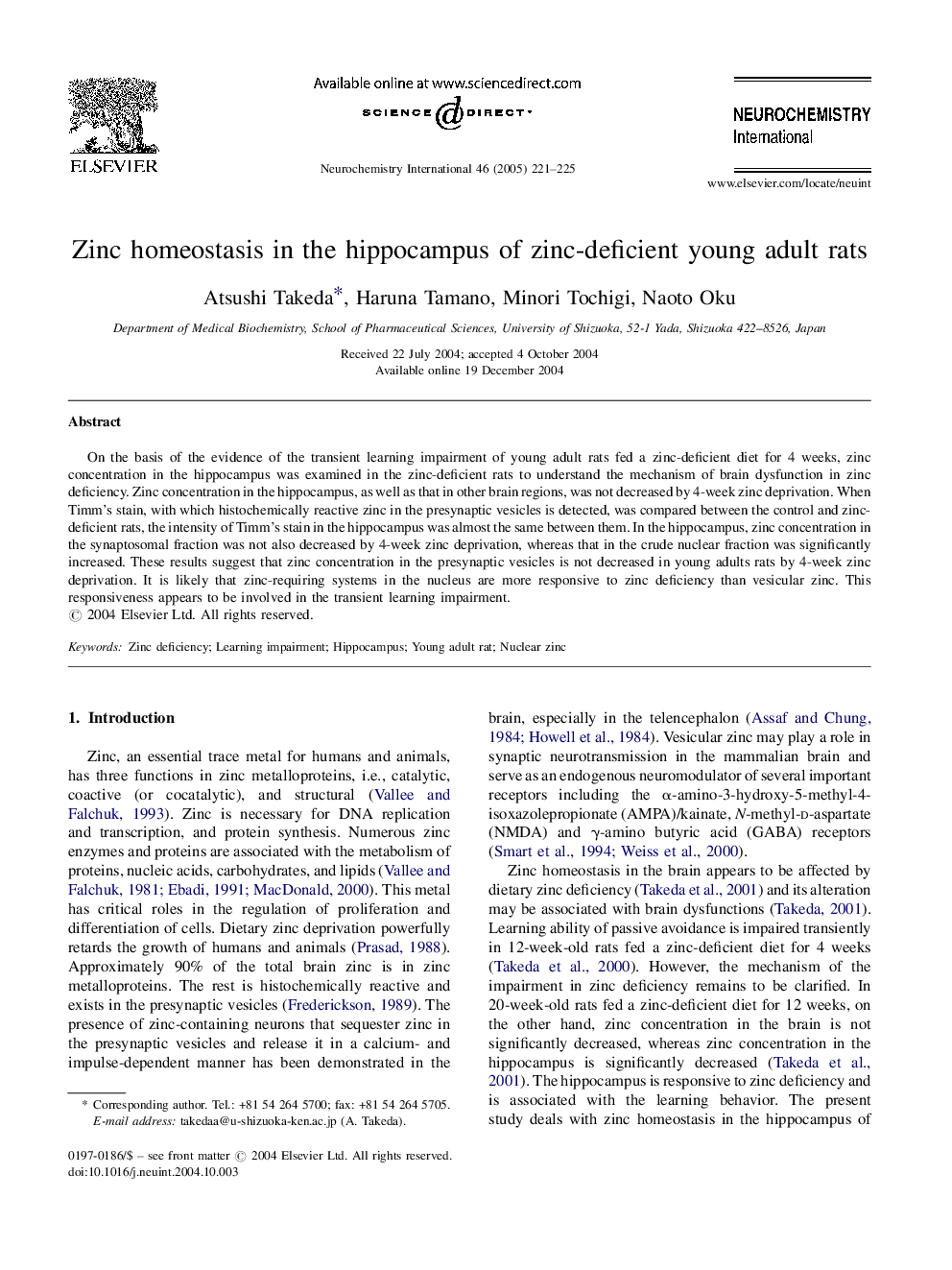| Article ID | Journal | Published Year | Pages | File Type |
|---|---|---|---|---|
| 10958410 | Neurochemistry International | 2005 | 5 Pages |
Abstract
On the basis of the evidence of the transient learning impairment of young adult rats fed a zinc-deficient diet for 4 weeks, zinc concentration in the hippocampus was examined in the zinc-deficient rats to understand the mechanism of brain dysfunction in zinc deficiency. Zinc concentration in the hippocampus, as well as that in other brain regions, was not decreased by 4-week zinc deprivation. When Timm's stain, with which histochemically reactive zinc in the presynaptic vesicles is detected, was compared between the control and zinc-deficient rats, the intensity of Timm's stain in the hippocampus was almost the same between them. In the hippocampus, zinc concentration in the synaptosomal fraction was not also decreased by 4-week zinc deprivation, whereas that in the crude nuclear fraction was significantly increased. These results suggest that zinc concentration in the presynaptic vesicles is not decreased in young adults rats by 4-week zinc deprivation. It is likely that zinc-requiring systems in the nucleus are more responsive to zinc deficiency than vesicular zinc. This responsiveness appears to be involved in the transient learning impairment.
Related Topics
Life Sciences
Biochemistry, Genetics and Molecular Biology
Cell Biology
Authors
Atsushi Takeda, Haruna Tamano, Minori Tochigi, Naoto Oku,
